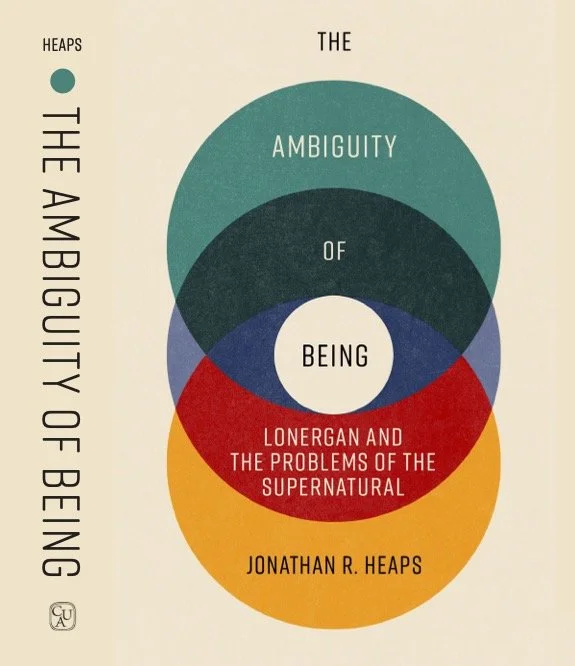The Ambiguity of Being
Jonathan R. Heaps
The debate in Catholic theology over the relationship between the natural and the supernatural has only occasionally engaged with Bernard Lonergan’s philosophical and theological contributions on the topic. The Ambiguity of Being argues that more detailed engagement with Lonergan’s work implies an oversight in both the 20th- and 21st- century debates. Ambiguity argues the controversy has failed to notice how the problem of the natural and the supernatural is, in fact, two problems. The Ambiguity of Being takes both problems in their widest sense to be about action—both divine and human. The first problem asks how God can act in human action. A question for Christians at least since St. Augustine faced the Pelagian controversy, Lonergan retrieved what he understood to be St. Thomas Aquinas’s mature solution. It is a solution gathering together a whole series of theological and philosophical developments into a subtle metaphysical theory of divine and human cooperation. But the recent debates have resituated this problem (and various interpretations of St. Thomas’s solution to it) in a modern world with modern concerns about culture and politics for the sake of answering a second, intrinsically related, but really distinct question: What is God doing in human action? The Ambiguity of Being finds that the recent controversy almost always finds participants attempting to deduce an answer to the second, modern problem from the medieval, metaphysical Thomist solution to the first. By contrast, The Ambiguity of Being argues at length the modern problem cannot be reduced to, nor an answer deduced from its medieval, metaphysical partner because the modern problem of the supernatural— What is God doing in human action?—is a hermeneutical problem that calls for a hermeneutical answer. The Ambiguity of Being sketches a heuristic for what a fully adequate answer to this question would require, suggesting a radical re-conception of modern theology’s scope.
Praise for The Ambiguity of Being
“The Ambiguity of Being intervenes in tangled Catholic debates over nature and grace, the natural desire to see God, and the status of modern theologies with a work that is more than summary or subtle re-argumentation. It is a thoroughgoing retrieval of Bernard Lonergan’s early Thomist philosophy and theology, and a decisive opening into new and present questions. Jonathan R. Heaps shows readers how there are two problems of the supernatural, a medieval one and a modern one, rather than only one, and how theologically practical this abstract insight is. With both clarity and depth of vision, The Ambiguity of Being asks, fundamentally, what specific difference in creation is the difference that divine grace makes. It reveals how exciting and difficult such a question and its answer really are.”
— Anne M. Carpenter, Danforth Chair of Theological Studies at Saint Louis University
“The Ambiguity of Being is an exercise in original, basic theological research, meticulously and intricately argued, and visionary in its conclusion. Heaps proves to be a masterful expounder of Thomist metaphysics while subtly discerning within the metaphysical analyses implications that open onto the further horizons of meaning, history, and culture and, finally, God’s redemptive activity within them.”
